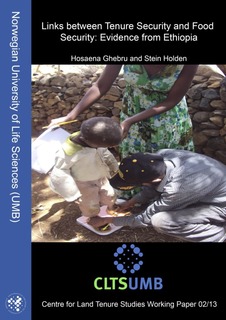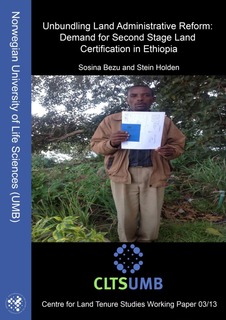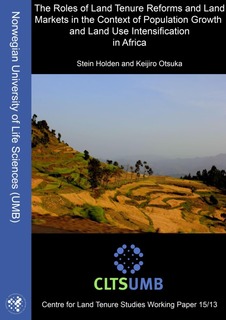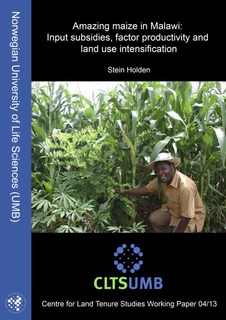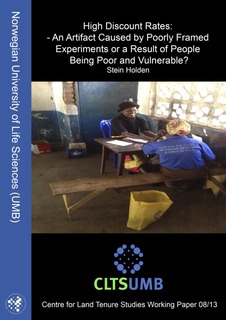Location
NMBU's mission is to contribute to the well-being of the planet. Our interdisciplinary research generates innovations in food, health, environmental protection, climate and sustainable use of natural resources.
About NMBU
NMBU's research is enabling people all over the world to tackle the big, global challenges regarding the environment, sustainable development, how to improve human and animal health, renewable energy sources, food production, and land- and resource management.
Members:
Resources
Displaying 51 - 55 of 98Links between tenure security and food security : evidence from Ethiopia
The study uses five rounds of household panel data from Tigray, Ethiopia, collected in the period 1998–2010 to assess the impacts of a land registration and certification program that aimed to strengthen tenure security and how it has contributed to increased food availability and thus food security in this food-deficit region. Our first survey took place just a year before the intervention (the land certification program).
Unbundling land administrative reform : demand for second stage land certification in Ethiopia
Ethiopia has implemented one of the largest, fastest and cheapest land registration and certification reforms in Africa. While there have been evidences of positive impacts of this land reform in terms of increased investment, land productivity and land rental market activities, the government is now piloting another round of land registration and certification that involves GPS measurement and computer registration.
The roles of land tenure reforms and land markets in the context of population growth and land use intensification in Africa
This article provides a review of the past and potential future roles of land tenure reforms and land markets in Sub-Saharan Africa (SSA) as responses to population growth in the process of land use intensification and livelihood transformation. The farm size distribution and the existence of an inverse relationship (IR) between farm size and land productivity in SSA and the implications of this relationship for efficiency and equity are investigated.
Amazing maize in Malawi : input subsidies, factor productivity and land use intensification
The paper uses three years of household farm plot panel data (2006-2009), covering six districts in central and southern Malawi to assess factor productivity and farming system development under the input subsidy program. All farm plots of the households were measured with GPS. Maize production intensified in this period as maize area shares of the total farm size were reduced while input use intensity and yields increased. Yields of improved maize were significantly (+323 kg/ha) higher than for local maize.
High discount rates : an artifact caused by poorly framed experiments or a result of people being poor and vulnerable?
This study revisits the issue whether poverty and shocks are associated with high discount rates by using an incentive compatible Multiple Price List approach in a poor rural population in Africa where a substantial share of the population had been affected by drought in the recent rainy season. Randomized treatments included tests for present bias, magnitude effects and time horizon effects.


